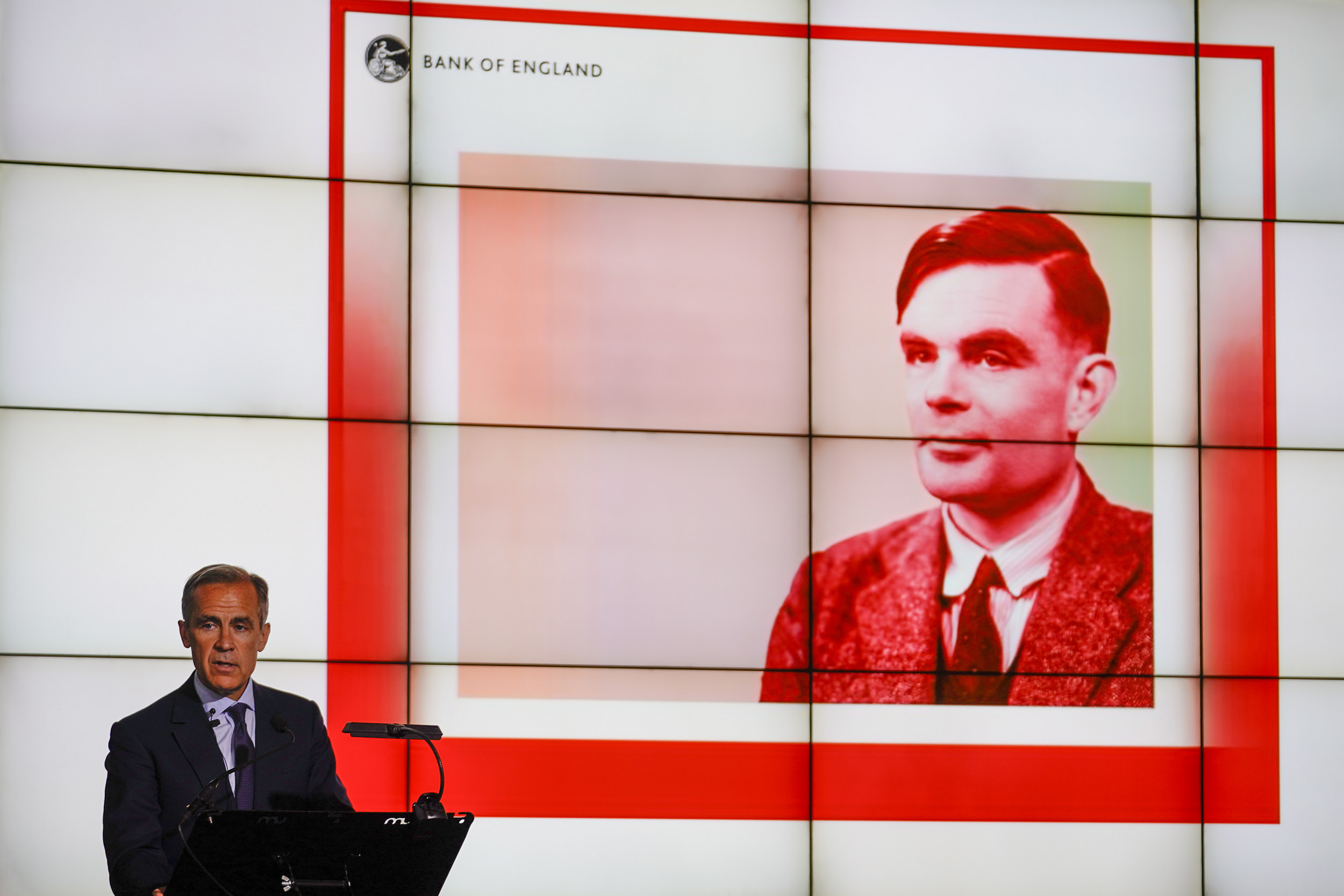Who Is Alan Turing? Mathematician Who Solved 'Unbreakable' Nazi Code Will be Face of £50 Note - 4 minutes read
 Who Is Alan Turing? Mathematician Who Solved 'Unbreakable' Nazi Code Will be Face of £50 Note
Who Is Alan Turing? Mathematician Who Solved 'Unbreakable' Nazi Code Will be Face of £50 NoteThe 50-pound note is getting a facelift. The Bank of England announced renowned mathematician and engineer Alan Turing would be honored by having his image placed on the highest-denomination of English banknotes on Monday.
Turing was one of more than 227,200 people who were being considered to appear on the banknote, which is worth $62 in American currency. Prominent figures like Charles Babbage, Margaret Thatcher, Ada Lovelace and Stephen Hawking were also in the running. The Bank said it opted for Turing as a way to recognize his historic accomplishments and contributions to society, which were largely overshadowed during Turing's lifetime because of Britain's rules against homosexuality.
"Alan Turing was an outstanding mathematician whose work has had an enormous impact on how we live today," Mark Carney, the governor of the Bank of England, said in a statement. "As the father of computer science and artificial intelligence, as well as a war hero, Alan Turing's contributions were far-ranging and path-breaking."
He added: "Turing is a giant on whose shoulders so many now stand."
The banknote currently features the face of James Watt—the Scottish inventor and mechanical engineer responsible for the steam engine. However, Turing's image is slated to appear on new bills by the end of 2012. All Bank of England bills depicts Queen Elizabeth 11's face on one side while the face of another reputable European figure appears on the other.
Despite saving countless lives by solving the "unbreakable" Nazi code during World War II, many of Turing's achievements were kept under wraps because of Britain's Victorian laws against homosexuality. Turing was convicted for "acts of gross indecency" after his relationship with 19-year-old Arnold Murray was discovered in 1952.
At the time, Turing was working at the University of Manchester and aiding England's Government Communications Headquarters, of which he lost security clearance for following his admittance of homosexual acts. To avoid going to prison, Turing opted for chemical castration. He was discovered dead from cyanide poisoning just two years later.
In more recent times, recognition of Turing and his work—which is considered the theoretical basis for modern-day technology and artificial intelligence—has become widely accepted. Prime Minister Gordon Brown offered an official, public apology to Turing on behalf of the country in 2009, which later led to Turing being given a royal pardon in 2013. Turing's legacy also resulted in Britain introducing legislation that would pardon all gay men previously convicted of crimes once deemed gross indecency in 2016.
Turing's life and work were also recognized in the 2014 historical drama, The Imitation Game, starring Benedict Cumberbatch.
Source: Newsweek
Powered by NewsAPI.org
Keywords:
Alan Turing • Mathematician • TNA Unbreakable • Nazism • Bank of England £50 note • Banknotes of the pound sterling • Bank of England • Mathematician • Alan Turing • Kingdom of England • Banknote • Banknote • Charles Babbage • Margaret Thatcher • Ada Lovelace • Stephen Hawking • Society • Alan Turing • Homosexuality • Alan Turing • Mathematician • Mark Carney • Governor of the Bank of England • Computer science • Artificial intelligence • Alan Turing • Banknotes of the pound sterling • James Watt • Scottish people • Invention • Mechanical engineering • Steam engine • Alan Turing • Bank of England • The Face of Another (film) • Unbreakable (film) • Nazism • World War II • Roman Britain • Victorian era • Homosexuality • Labouchere Amendment • The Shepherd's Chapel • Alan Turing • University of Manchester • England • Government Communications Headquarters • Security clearance • Homosexuality • Alan Turing • Chemical castration • Cyanide poisoning • Alan Turing • Technology • Artificial intelligence • Prime minister • Gordon Brown • Nation state • Pardon • Will and testament • United Kingdom of Great Britain and Ireland • Legislation • Homosexuality • Crime • Labouchere Amendment • Alan Turing • Historical period drama • The Imitation Game • Benedict Cumberbatch •